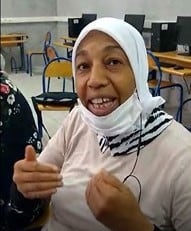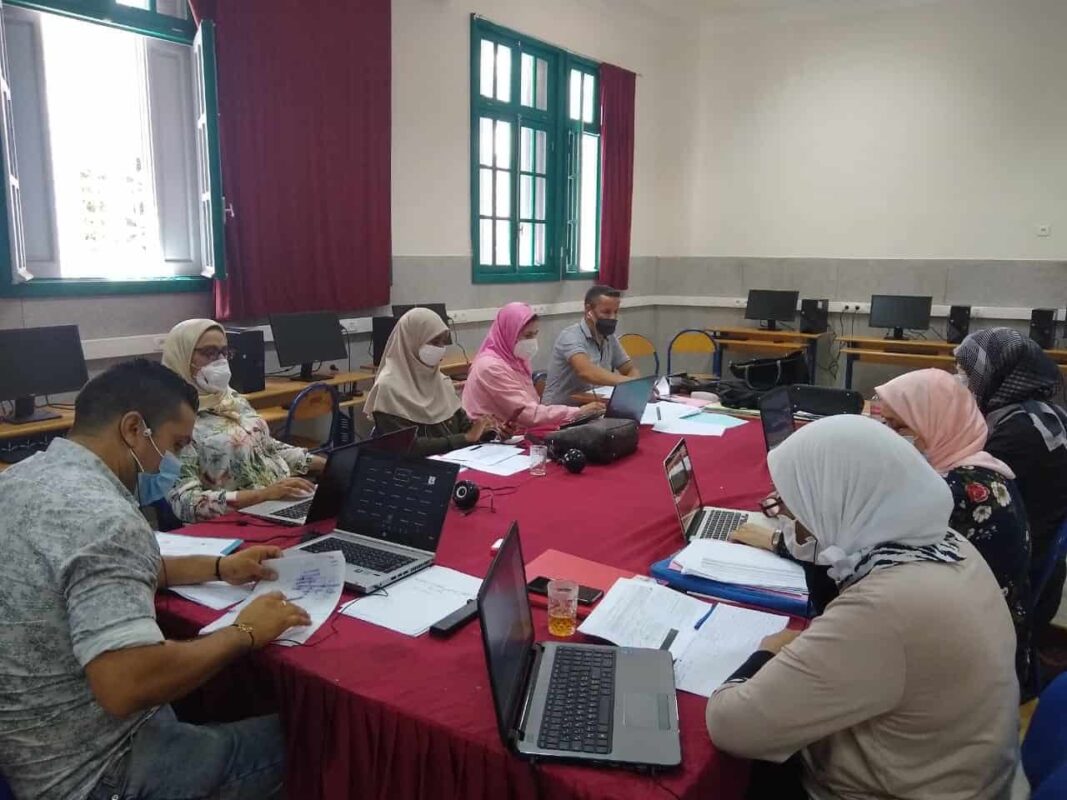Fifty-five Moroccan teachers engaged in the workshop-training to share ideas and set benchmarks that monitor students’ literacy performance.Rabat, MoroccoA new intensive workshop welcomed teachers to have a seat at the table with Morocco’s Higher Council of Education to decide on measures of success and consider teaching techniques that will build students’ Arabic listening and reading comprehension skills.

Safia Al Ifriki, a second grade teacher, was one of 55 teachers who engaged in the workshop-training.
“This is the best training I have received in 25 years,” Al Ifriki said.
Al Ifriki said she saw clearly how students’ performance evaluation was relevant to her work as a teacher.
“When teachers know the content and performance standards, they can produce texts that adapt to students’ levels and make learning a better experience for pupils,” she said. “I promise I will share my new skills with other teachers for the betterment of our students.”
Typically, the Ministry of National Education decides standards for measuring success, but the Morocco Higher Council of Education and Training is changing the educational framework, as in 2008 it identified that the educational system was weak and students’ literacy rates were below average because of poor standards and benchmarks.
In July, a new effort invited teachers to join the ministerial offices to help create education benchmarks. The pilot initiative, which is under the National Program for Reading, is on par with guidance from the Evaluation Capacity Building activity and international best practices.
Over 50 instructors from four regions in Morocco convened during a benchmark workshop to set desired goals and concrete indicators that measure students’ progress, alongside 10 inspectors and three teacher-trainers. The U.S. Agency for International Development–funded workshop supports Morocco’s already existing strategies for educational reform.
Karen Tietjen, a Principal Technical Advisor with Creative Associates International, says that the new system of including teachers will enhance current efforts and create ideas for new methods.
“The Ministry of Education can develop its curriculum, teacher-learning materials, tools and techniques, teacher professional development program, and other instructional interventions based in part on a robust set of learning standards and benchmarks,” says Tietjen.

She adds that instructors are going to also be thoughtful about chosen curriculum, posters and other material that’s displayed around their individual classroom and other educational tools used to teach students.
“Teachers can backward-map from the standards and benchmarks to determine the necessary [learning plan],” she says.
She adds that teachers like Al Ifriki are more enthusiastic about implementing new protocols since they are involved in the process.
“When you empower teachers, you motivate them. And then they are much more accepting of trying new techniques,” says Tietjen. “That shows an appreciation of what teachers do and considers what they’re capable of.”
Mounya El-Asri contributed to this article.